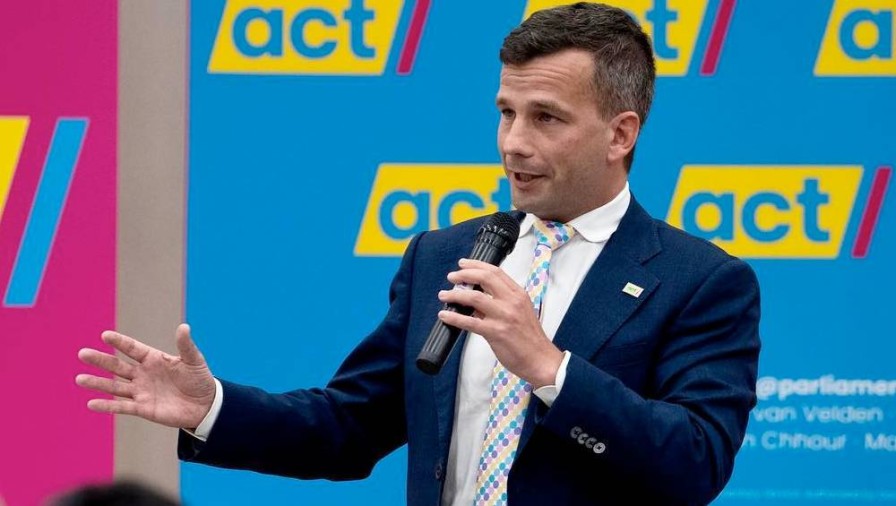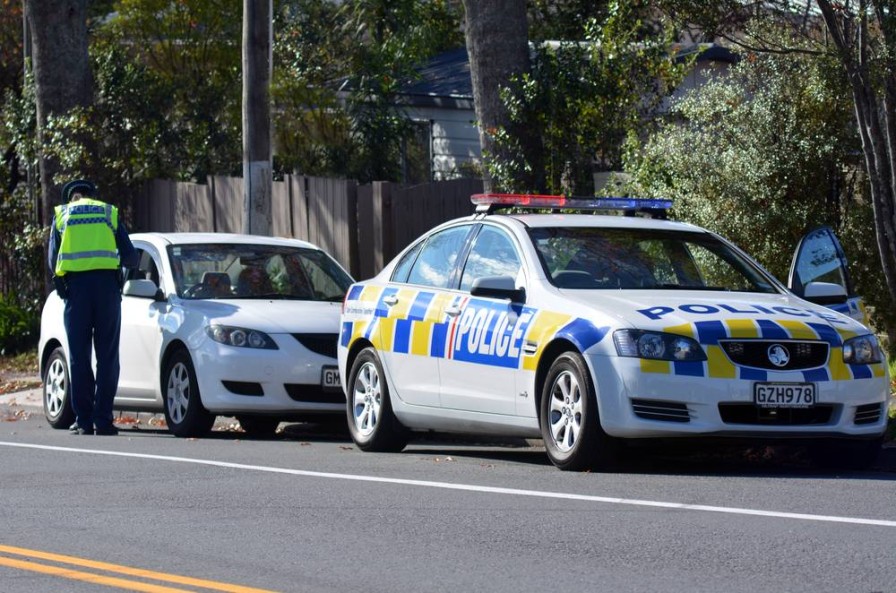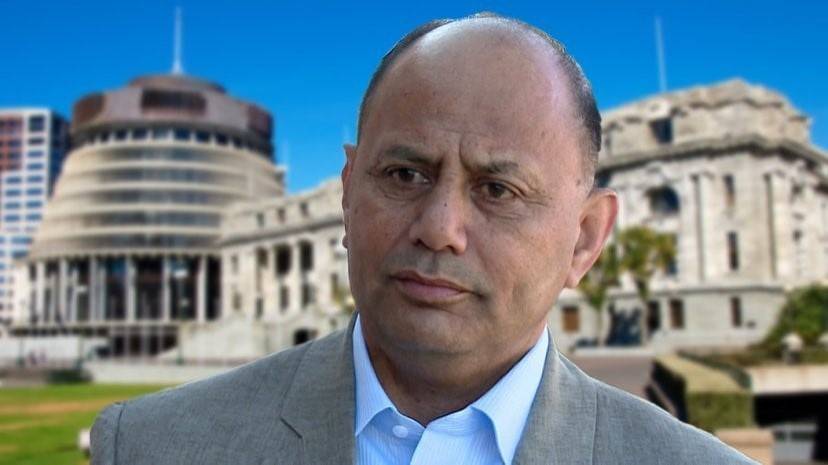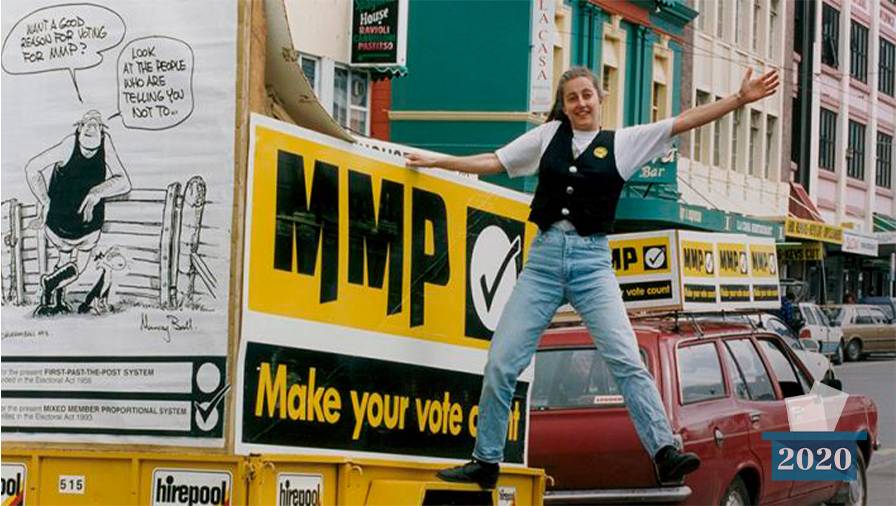Political positioning, law and order and MMP machinations
The coalition of chaos versus the coalition of cuts.
NBR columnist Grant Walker speaks with Brent Edwards.
The coalition of chaos versus the coalition of cuts.
NBR columnist Grant Walker speaks with Brent Edwards.
Both the National and Labour Parties have thought hard about how to depict their political opponents in the lead up to the October 14 election.
National came up with the “coalition of chaos” to describe a potential centre-left government comprising of Labour, the Greens and Te Pāti Māori. Labour responded with the “coalition of cuts”, in reference to what it says will have to be cuts in spending if a National-Act government is to make the tax cuts both parties promise.
National argues it can lift income tax thresholds – at a cost of more than $2 billion a year – and pay for it by getting rid of wasteful spending. Act’s tax policy is bolder, and it has clearly identified spending it would cut, including government agencies and departments it would scrap. But both parties say they would not make cuts to frontline services like health and education.
NBR presenter Grant Walker thinks Act leader David Seymour made a brilliant media move by embracing Labour’s moniker of the “coalition of cuts”.
“Labour has taken to calling Act the coalition of cuts, but we wear that badge with pride. Yes, we’ll cut waste from government spending, and we’ll give Kiwis tax cuts that most want and deserve,” Seymour said in a statement this week.

Act leader David Seymour
National, though, is perhaps a little more circumspect as it continues to promise a less radical tax and spending cut programme.
At its annual congress over the weekend Labour committed to keeping the age of eligibility for New Zealand Superannuation at 65, while National and Act have promised to raise it to 67 gradually over time.
Then on Monday Prime Minister Chris Hipkins announced another $11 million for the programme to put fog cannons in dairies and other small retailers vulnerable to ram raids and other crime. Critics argued it was the ambulance at the bottom of the cliff and the Government needed to do more to prevent crime in the first place.
Both National and Act argued that meant tougher penalties for offenders and giving the police more powers and support to crack down on the spate of retail crime.
Law and order will be an issue this election – as it is most elections – with Opposition parties painting a picture of a country where people are frightened in their own homes.
Walker suggests the wheels are coming off for Labour, as the crime statistics get worse.
At the same time, though, Labour announced this week it had finally reached its target of increasing the number of police officers by 1800. This comes after the previous National-led Government closed police stations. So, while Labour might get attacked by the Opposition of being too soft on crime – and evidence it points to is the fact fewer people are incarcerated – Labour will equally point to the fact it has increased resources for the police.

Police numbers have increased by 1800 since 2017.
Police Minister Ginny Andersen said the Government had already announced more money in last month’s Budget to ensure police numbers did not go backwards again.
“With the addition of 1800 extra police, funding announced in Budget 2023 will ensure there is one officer for every 480 New Zealanders, compared with one for every 544 New Zealanders in 2017,” Andersen said.
Meanwhile, Walker points to the case of Justice Minister Kiri Allan reading the wrong speech in Parliament on a Bill – she read the second reading speech when it was having its third reading – and the referral of Education Minister Jan Tinetti to Parliament’s privileges committee as more evidence of a government under stress.
Nor does he believe hiking the tax on alcohol by 6.5% during a cost-of-living crisis will help, with small brewers and wine makers complaining it will make life tougher for them to survive.
Hipkins has defended the increase, saying it had happened every year since 1991.

People will be paying more for their booze thanks to a hike in the alcohol tax.
National has had its own problems, meanwhile, creating a dispute it did not need when its transport spokesperson Simeon Brown spoke out against bi-lingual road signs. It came after it was revealed that road signs damaged during Cyclone Gabrielle were being replaced by signs in both Māori and English.
National was accused by Hipkins of dogwhistling, an accusation National Party leader Christopher Luxon rejected even as he tried to justify National’s opposition to having bi-lingual signs. It was a debate the party did not need to have, and National MPs appeared blissfully unaware people could cope with bi-lingual signs around the world, including in Akaroa.
What might this all mean for likely allegiances before or after the election?
Te Pāti Māori president John Tamihere – a former Labour minister – has suggested Labour might want to concede some of the Māori seats to his party, given the prospect of a National-Act government which would “do over” the Māori Health Authority, cut benefits and make poor people suffer.
In response senior government minister Willie Jackson told the New Zealand Herald that Tamihere was right that a National-Act government did not look good for Māori and that Labour and Te Pāti Māori had to find ways to work together better.

Broadcasting Minister Willie Jackson.
“I get what John is saying but it is not a deal we can do at the moment,” Jackson said.
Walker asks what are the odds of a deal, particularly as the election looks so tight?
Labour is unlikely not to stand candidates in the Māori seats, but it is possible in some seats – Te Pāti Māori co-leader’s Waiariki seat for example – Labour’s campaign focuses more on the party vote than on winning the electorate.
With reference to the election Walker wonders whether voters will actually know what they are voting for and instead will have to wait until after the election to know what policies a government might enact, given both Labour and National will depend on other parties to give them the numbers needed to govern.
“Doesn’t that make a mockery of election promises when you can just blame the minor party and change your policy?” Walker asks.
Maybe, but MMP has been in place since 1996. It is how every election has worked since then – apart from 2020 when Labour won an outright majority – and voters are surely aware that parties will have to make compromises when in government. Even before MMP they had to do that.

Under MMP political parties invariably have to work with others to form a government.
Informed voters needed to take into account the policies of likely coalition partners to get a sense of what might happen to the major party’s policies if they got to form a government. Equally smaller parties will not get everything they want. For instance, Act is unlikely to get its wish list if it forms a government with National, but it might just have enough influence to nudge National to be ever so bolder in making tax cuts.
Equally, on the other side of politics the Greens and Te Pāti Māori might influence Labour to go a bit further on climate change initiatives and on initiatives to address inequalities Māori face. Then voters need to consider what might happen if the Opportunities Party or New Zealand First – more likely NZ First – make it into Parliament.
In the end, though, all voters can do is vote for the party of their choice and hope it can progress its policy agenda as much as possible.